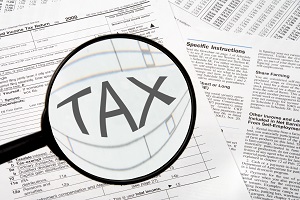Having the finances well-organized in your community association is essential to maintain a great reputation amongst current and future residents. Many HOAs are not responsible with their finances, which causes them to not operate at their maximum potential. If you want to avoid money problems down the road, consider these financial tips for an HOA.
Financial Tips for an HOA to Follow
As a board member, it is part of your job to protect your HOA finances. Failing to do so can result in financial ruin, causing property values to plummet and homeowners to possibly sue. It might seem like a tall order to avoid such consequences, but there are some simple ways to ensure financial success. Here are the best financial tips for community associations to follow:
1. Maintain Capital
 As with any other organization, your HOA relies on operating funds to function every day. As such, it is important that there is enough money in this fund to accommodate daily expenses. Make sure to set realistic expectations about your working capital needs. It is usually wise to keep at least half a month’s expenditures in the working capital’s fund. This way, you will not run into cash flow issues later on.
As with any other organization, your HOA relies on operating funds to function every day. As such, it is important that there is enough money in this fund to accommodate daily expenses. Make sure to set realistic expectations about your working capital needs. It is usually wise to keep at least half a month’s expenditures in the working capital’s fund. This way, you will not run into cash flow issues later on.
2. Create Your “Deferred Maintenance” Fund
Community associations need to prepare for maintenance expenses. It is a good idea to assemble a “deferred maintenance” fund to collect from residents for larger painting expenses or maintenance needs over time. Keep this separate from your HOA’s operating funds and reserve funds. This way, residents will not be bombarded with expenses. Furthermore, you can accrue cash towards the larger maintenance expenses and remain prepared for them.
3. Budget Responsibly
It may go without saying, but you would be surprised at how reckless some board members can be. Budgeting responsibly is an integral part of the job. It all begins with budget preparations before the start of the year. Make sure to allocate enough funds for each line item. Moreover, you must consider your community’s daily financial needs and then add in some funds for unexpected emergencies. If you can budget in this way, you will have less financial issues when emergency expenses do occur.
4. Write an Investment Policy
 If you are going to assemble an investment plan, it is essential to write down your plan and have a clear-cut strategy. If you can do this, it will attract more investors and will subject you to less legal liability in the long-term. When considering your investment options, make sure to stay away from risky investments. While you can do this with your personal funds, HOA financial management requires a great deal of caution. Find a plan that maximizes yield without sacrificing security.
If you are going to assemble an investment plan, it is essential to write down your plan and have a clear-cut strategy. If you can do this, it will attract more investors and will subject you to less legal liability in the long-term. When considering your investment options, make sure to stay away from risky investments. While you can do this with your personal funds, HOA financial management requires a great deal of caution. Find a plan that maximizes yield without sacrificing security.
5. Collect Your Dues
Collecting your HOA dues is vital to keep your cash flow positive. At times, it can be challenging to collect dues from all of your residents. Some may even deliberately default on payments to make a point. Make sure to have clear cut policies and collection protocols posted to your residents. Consistent enforcement is equally paramount. By doing so, you can collect important cash to get more payments.
6. Manage Your Accounting Efficiently
You need to prepare regular accounting reports. You need to assemble the current period’s expenditures, a detailed account of actual versus budgeted income and the overall expenditures for that particular period, a full accounting of receivables that are over 30 days overdue, and a finished balance sheet. By having this information prepared, it will be a great help to your business because you will be able to make informed budgeting decisions.
7. Examine Your Insurance Carefully
 Insurance is an area where many community associations overspend considerably. Be sure to carefully calculate what your insurance costs are to be sure that you are not overpaying. It is quite common for HOAs to pay a great deal of capital and then realize they are not covered enough in a certain area when an emergency occurs. For insurance cases, it is usually best to have a lawyer examine your policy to cover your bases.
Insurance is an area where many community associations overspend considerably. Be sure to carefully calculate what your insurance costs are to be sure that you are not overpaying. It is quite common for HOAs to pay a great deal of capital and then realize they are not covered enough in a certain area when an emergency occurs. For insurance cases, it is usually best to have a lawyer examine your policy to cover your bases.
8. Perform an Annual Audit
If you don’t know what an audit is, it is simply a thorough assessment of your organization’s financial health. It involves evaluating all financial records and statements to see whether your HOA finances are accurate and in good shape. With such an important purpose, it is easy to see why an audit is essential to your HOA’s financial success.
Some states, such as Florida, require organizations to perform audits. Check your HOA’s governing documents to see if there are any provisions for how often an audit must be conducted. If there are none, it is a good idea to schedule it every year or two. This way, you can assure your HOA is operating with accurate financial information, reducing the risk of problems in the future.
9. File Tax Returns
 One of the most overlooked financial tips for an HOA is to file tax returns. You may think your HOA is exempt from this because it is technically not a business, but you’d be wrong. A community association is considered a non-profit organization. Therefore, you must file tax returns.
One of the most overlooked financial tips for an HOA is to file tax returns. You may think your HOA is exempt from this because it is technically not a business, but you’d be wrong. A community association is considered a non-profit organization. Therefore, you must file tax returns.
If you fail to do so, you may end up facing enormous fines. Check with an accountant to see whether your HOA needs to file Form 1120 or Form 1120H. The wrong form could cost you unnecessary taxes on tax-exempt income.
10. Conduct a Reserve Study
A community association’s reserve fund is specifically set aside for future expenses as well as unexpected expenses. It is typically used for scheduled upgrades and replacements of common area amenities. Without a reserve fund, homeowners may be charged large assessments or special assessments to rapidly raise funds for large expenses.
To avoid such a scenario, your HOA must regularly conduct a reserve study. Reserve studies involve assessing the life of existing assets and calculating how much it will cost to repair or replace them once they have fully depreciated. With an amount in mind, you can compute how much to charge homeowners every year to cover the cost of repair or replacement. Due to the complicated nature of reserve studies, it is better to hire experienced professionals.
Save Your HOA from Financial Issues
These are the 10 best financial tips for an HOA to avoid money problems down the line. HOA finances are the lifeblood of any community association, so it is important to protect your funds at all costs. By keeping your finances secure, you can be assured of your HOA’s financial future and success.
HOA financial management is a complicated subject, which is why many board members choose to seek outside help. If you ever find yourself in the same boat, give us a call.
RELATED ARTICLES:
- How To Check For The Financial Health Of An HOA
- Top 13 Budgeting Mistakes Of Self-Managed Boards
- Can HOAs Ask For Special Assessments?

